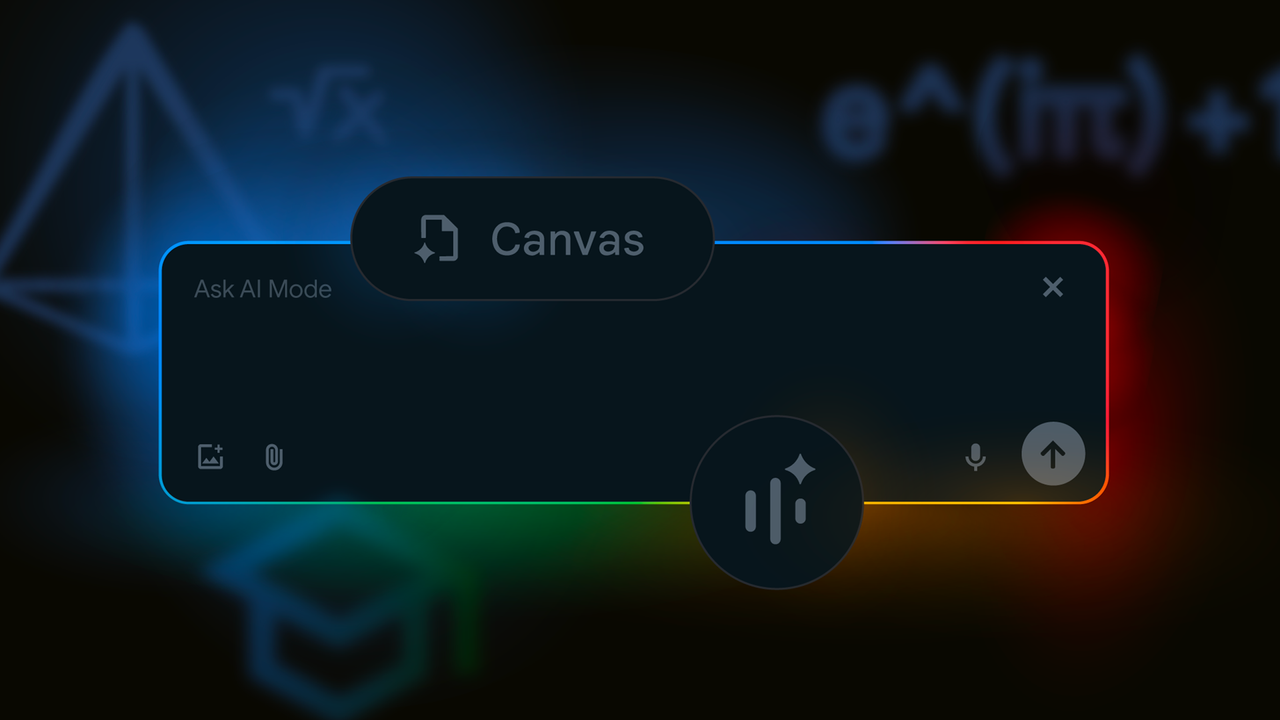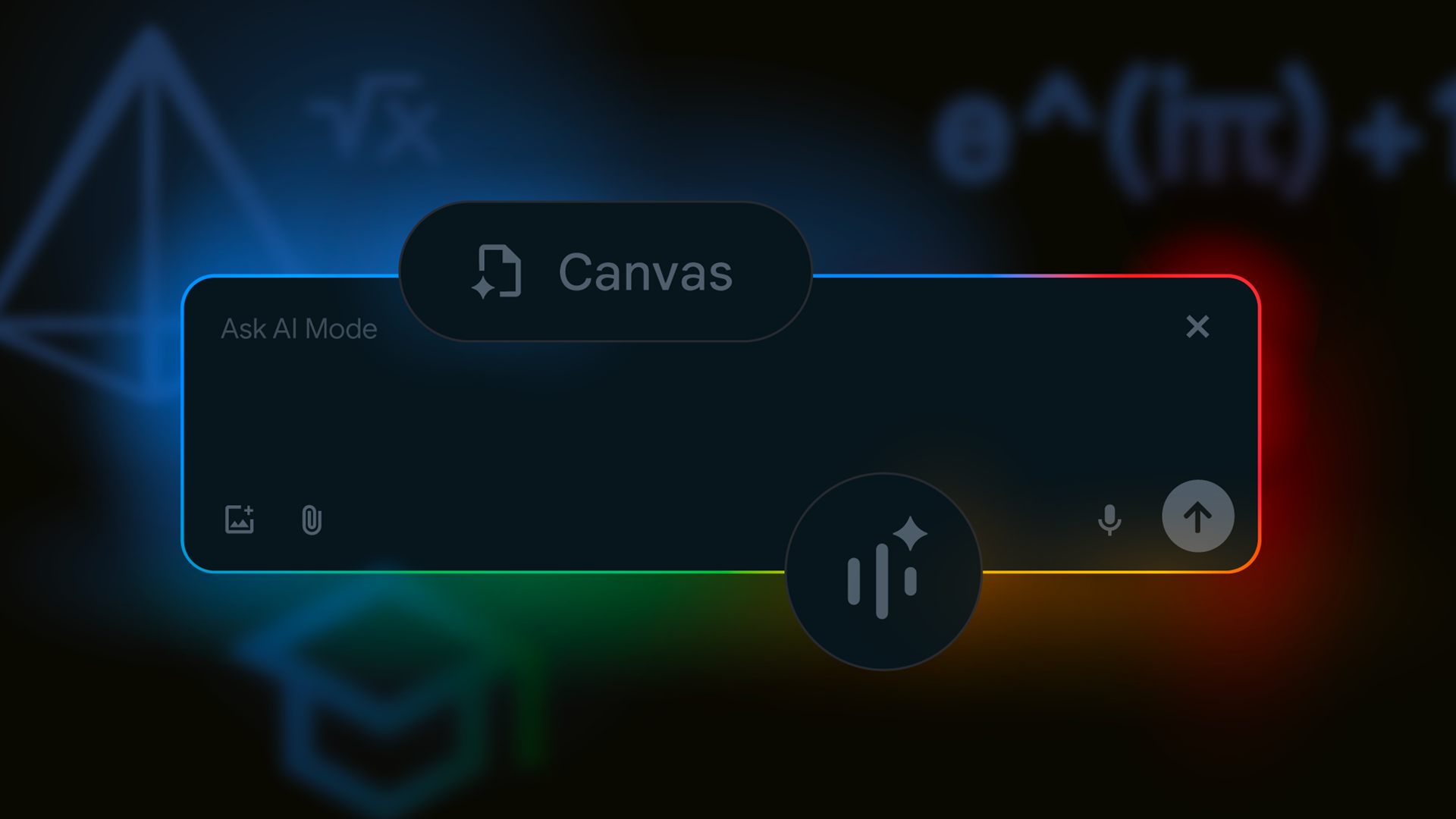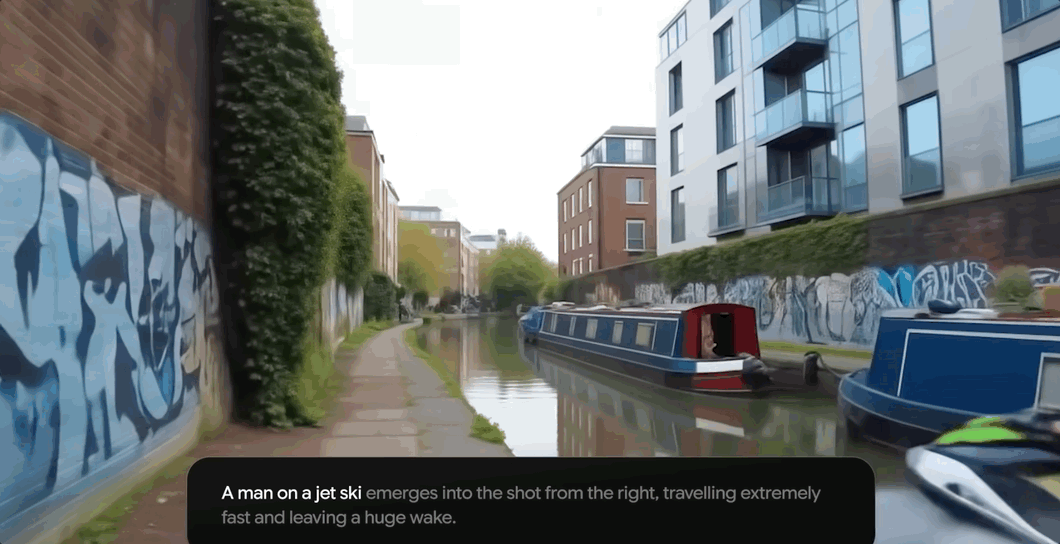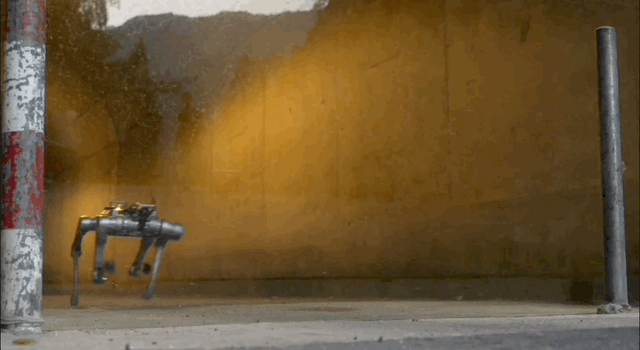
- Google has upgraded its AI Mode for Search
- AI Mode can now analyze PDFs and images, and use Search Live to analyze video content
- AI Mode has also added the Canvas feature
Google has enhanced its AI Mode in Search with a host of new features clearly aimed at encouraging people tempted by AI tools elsewhere to stick around.
AI Mode is already different from traditional search in that it sets up a more comprehensive response to your query by sending out multiple related questions based on your initial prompt. You can then ask follow-ups and adjust the thrust of your search.
With the new updates, AI mode is more of a multifaceted tool for learning and organizing information. The most immediately noticeable upgrade is that you can now upload PDFs and images to AI Mode on your desktop and ask nuanced questions about them.
On mobile, Google already lets you use AI Mode to ask questions about photos or screenshots. But making it available to desktop users means you can upload entire slide decks from a class or drag over a PDF of a book and grill the AI about the content like it’s an unpaid tutor. And the model doesn’t just respond based on your file; it will cross-reference the web to give answers that fit the context of your upload and are backed by sources and links.
Canvas planning
In case you can’t get all your deep dives done in one search, the new Canvas feature offers AI Mode users a more long-term option for organizing information. Canvas appears as a side panel in AI Mode that lets you create and edit projects across multiple sessions. It’s not dissimilar to the Canvas feature for ChatGPT, or indeed the Gemini Canvas tool it’s clearly based on. Think of it like a cross between a collaborative document and a study planner.
You can start with a prompt about a long-term project for learning something, then hit the Create Canvas button and see the AI piece together a draft, organize resources, and respond to follow-up questions as you tweak or elaborate on your goals. Plus, you can keep returning to it even if you close the tab. Continuity is crucial if you want to do more than just a traditional Google search that ends when you close the window.
Google has plans for Canvas to support its own file uploads, too, so it will absorb some of the abilities of AI Mode’s general toolkit. In fact, it seems like AI Mode will eventually look a lot like NotebookLM, though, for now, not with any AI-built podcasts.
Search Live
The third and possibly most futuristic upgrade to AI Mode is Search Live. If Canvas is about long-term thinking, Search Live is for real-time responses.
Search Live embeds Google Lens with Google’s Project Astra AI to provide answers based on the video you show it. Using Search Live, you could point your phone’s camera at any problem from a math equation on a page to a misbehaving appliance and start asking the AI questions while you’re filming. The camera feed becomes the context for the AI’s answers as it uses what you’re seeing and saying to respond with solutions, and links as though you’re FaceTiming a friend with all the answers.
This kind of live help could make people rethink what they expect from AI tools in terms of both accuracy and immediacy. Instead of a blank search box, it’s looking at something, conversing about it, and delivering useful answers immediately.
That trend continues with the Google Lens upgrades coming to Chrome. Google is changing the address bar so that when you click on it, you’ll be offered the option to “Ask Google about this page” and get answers about whatever website, PDF, slide, or other content is open in Chrome. You’ll even be able to get AI Overviews of any section you highlight. You can then tap into AI Mode to go deeper, essentially using the web page as a starting point for a more in-depth project.
All of these changes may not feel like overnight revolutions, but they could be the basis for a new way of thinking about search. And as AI chatbots encroach on what was once Google’s undisputed leadership in looking for things online, the company is no doubt hunting for competitive answers and, in the process, delivering AI search upgrades like these upgrades to us.






